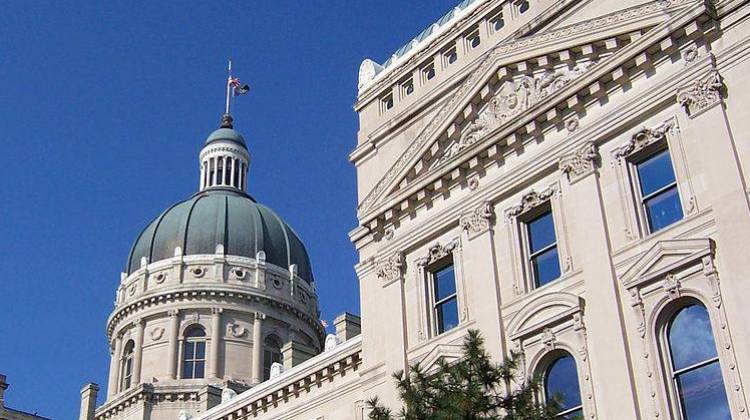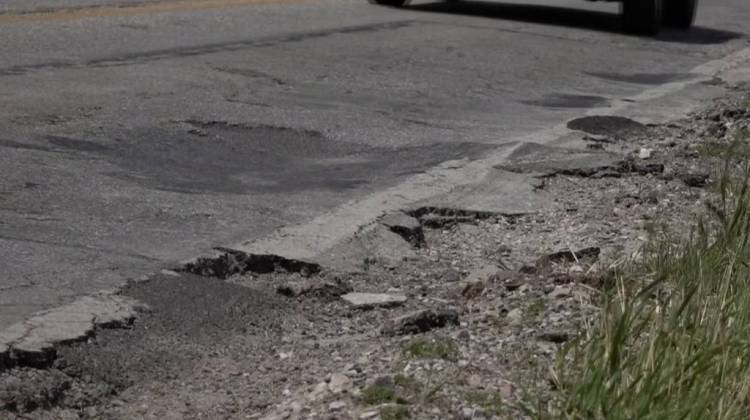By AILEEN CHUANG , Associated Press
INDIANAPOLIS (AP) — Since the Indiana Statehouse came under single-party rule, Republican majorities have cut corporate tax rates, increased taxes and fees on motorists and left open the possibility of more toll roads.
Yet when the state was poised to collect an estimated $340 million from businesses over about three years thanks to the recent federal tax overhaul, GOP Statehouse leaders acted swiftly to give a large chunk of it back. And they went into overtime, calling a May special session to finish the deal, along with four other bills, after failing to get legislation passed during this year's regular session.
"Corporations bring jobs, and we want jobs," said House Ways and Means Committee Chairman Tim Brown, a Crawfordsville Republican who sponsored the tax legislation. "Our policy was to get to one of the lowest corporate tax rates in the country."
Republicans said the state will still gain an estimated $155 million during the same period under the adjustments to the state's tax code signed into law by Gov. Eric Holcomb.
Democrats have argued it's a continuation of a trend pushed by the GOP in recent years to shift the tax burden from the wealthy onto the middle and working classes. Plus, the money that the Republicans missed from businesses could be used to fund preschool for poor kids, or shoring up the state's beleaguered child welfare agency, which has seen a surge in cases due to the opioid epidemic.
"We ought to take the opportunity to look at state revenue sources," said Rep. Greg Porter, an Indianapolis Democrat and ranking minority member of the House Ways and Means committee. Instead, he said, "we came back to check some boxes for some friends."
For Republicans it's a point of pride. Low taxes and limited regulation lead to economic growth, they say. It also would have been new money the state didn't previously collect, which they say amounts to a tax increase.
The federal overhaul was a win for businesses. But it included provisions allowing portions of a company's foreign income to be taxed, limiting deductions on interest and reducing the ability to write off business losses for a tax benefit.
In Indiana, business groups warned that a failure to pass legislation giving up the additional tax revenue would hurt the state's ability to compete. Indiana is also trying to woo online retail giant Amazon, which named Indianapolis one of 20 finalist cities where they are looking to build a second headquarters.
The Organization for International Investment, a Washington-based trade association, urged the state to take a cue from Georgia, where Atlanta is another city on Amazon's short list.
The organization represents scores of international companies, including over 70 Indiana employers such as Honda, Toyota and BP.
A lack of action would "increase taxes on companies, making the state less competitive for international investment," the group wrote in a letter to Republicans and Democrats on the Legislature's budget writing committees. "... Indiana should follow Georgia's lead."
That's exactly what they did.
While the law will benefit larger companies, the Indiana Chamber of Commerce acknowledged that it could still harm some small businesses by leaving in place federal provisions that will see them taxed more.
"We ought to take another look at how some of these things affect those people once we have a better idea of how it all plays out," said Bill Waltz, the group's vice president of taxation and public finance. Waltz still praised the bill lawmakers approved, however, calling it a "necessary reaction."
Larry DeBoer, a Purdue University economist, said it's hard to tell if big businesses — or the state — would actually have been hurt without the bill.
"Corporate tax cuts to encourage development must also take into account what impact it might have on the services that government delivers that businesses value," said DeBoer. "Does it work or will it work? Maybe ... we'll never know what the economy would have looked like had we done something else."
 DONATE
DONATE








 Support WFYI. We can't do it without you.
Support WFYI. We can't do it without you.